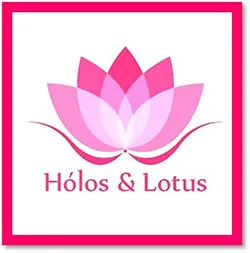
En la pirámide de la evolución, los humanos coronamos la cúspide, significando con ello que mientras más nos alejamos de lo instintivo animal, más racionales e “inteligentes” somos como especie. Cuestión que se agrade por todas las implicaciones positivas que tiene el asunto y que nos hacen ser quienes somos en este hermoso presente.
Sin embargo, ¿Cuánto de ese caminar nos ha alejado de nuestra esencia y qué implicaciones tiene ello en diario vivir? Los instintos, al igual que las emociones primarias, son innatos, y en su conceptualización más básica nos han permitido sobrevivir, sin un instinto de conservación que nos lleve a protegernos, a alimentarnos, a reproducirnos y a reunirnos ¿qué hubiese sido de nosotros?
Al mismo tiempo, si estos instintos no hubiesen sido “domesticados” por las costumbres, las normativas, la ética, la moral, transmitida a través de la familia, la escuela, la cultura y todo el contexto social, cabe la misma pregunta ¿qué hubiese sido de nosotros?
Resumiéndolo, desde mi perspectiva pesimista, pudiera decir que seríamos más salvaje de lo que somos hoy en día y lo digo porque basta ver una guerra actual o el deterioro ambiental para preguntarte ¿Qué es lo que nos pasa? Pero también me inquieta otra pregunta; ¿nos falta instinto y nos sobra razón o viceversa?
El caso es que pareciese que nuestros instintos de conservación como que tienen una tendencia a adormecerse alejándonos de la capacidad de ser sensibles a la vida, en lo social, por ejemplo, normalizamos la barbarie, la intolerancia, la injusticia, pero seamos justos y menos catastróficos, también encontramos en esta humanidad a aquellos que se restean y luchan contra la intolerancia, buscan proteger y conservar a los miembros de una sociedad sedienta de otros tipos de relaciones.
Soltemos el grupo y hablemos de qué hay en lo personal, ¿cómo vas con tus instintos? Veamos por ejemplo, el instinto de intimidad, esa necesidad de estar contigo mismo sin que ello signifique sentirte solo o el instinto gregario y de actividad que nos hace levantarnos de la silla de trabajo, dejar el teléfono a un lado para interactuar con el otro de manera presencial donde podemos tocarnos, sonreírnos, escucharnos, empatizar, mirarnos a los ojos, acciones que incluyen el instinto de procurarnos bienestar.
Pensemos en el instinto de exhibición, de mostrarnos al mundo, declarando nuestra existencia y atractivos, al cual podemos agregarle, el de seducción para atraer al otro. Y qué decir del instinto de agresividad, que nos impulsa a proteger lo que consideramos nuestro, a poner límites y elevarnos ante los obstáculos.
Cuando dejamos adormecer nuestros instintos, nos estamos desconectando de la vida, dejamos de escucharnos a nosotros mismos, al cuerpo y las emociones. Los instintos nos hacen sentir vivos, nos motivan y nos dan esa energía vital que nos lleva a la acción.
Te invito a escribir sobre este tema, no hay pregunta que responder, pero si te sirve, te dejo estos planteamientos:
•Cuando estás estresado, ansioso ¿Qué está pasando con tu instinto de intimidad, reposo, regulación?
•Cuando la tristeza y el desánimo quieren permanecer en ti, ¿Qué está pasando con tu instinto de agresividad, actividad, gregario, motivación o de protección?
•Cuando la libido baja y baja te has preguntado ¿Qué está pasando con tu instinto de seducción, lúdico, bienestar, exhibición, estimulación?
Recuerda
-Seguir las normas de publicación de la comunidad.
-Rebloguea, si es de tu gusto, para que más personas participen.
-Utiliza la etiqueta #consciencia.


In the pyramid of evolution, humans are at the top, meaning that the further we move away from animal instincts, the more rational and “intelligent” we are as a species. This is something to be grateful for, given all the positive implications it has and which make us who we are in this beautiful present.
However, how much of this journey has distanced us from our essence, and what implications does this have for our daily lives? Instincts, like primary emotions, are innate, and in their most basic conceptualization, they have allowed us to survive. Without a self-preservation instinct that leads us to protect ourselves, feed ourselves, reproduce, and come together, what would have become of us?
At the same time, if these instincts had not been “domesticated” by customs, norms, ethics, and morals transmitted through family, school, culture, and the entire social context, the same question arises: what would have become of us? In summary, from my pessimistic perspective, I could say that we would be more savage than we are today, and I say this because you only have to look at a current war or environmental degradation to ask yourself, “What is wrong with us?” But another question also troubles me: do we lack instinct and have too much reason, or viceversa?
The fact is that it seems that our instincts for self-preservation tend to become dormant, distancing us from the ability to be sensitive to life. In society, for example, we normalize barbarism, intolerance, and injustice, but let's be fair and less catastrophic. We also find in this humanity those who stand up and fight against intolerance, seek to protect and preserve the members of a society thirsty for other types of relationships.
Let's leave the group and talk about what's personal. How are you doing with your instincts? Let's look, for example, at the instinct for intimacy, that need to be with yourself without it meaning feeling alone, or the gregarious and active instinct that makes us get up from our work chair, put the phone aside to interact with others in person where we can touch each other, smile at each other, listen to each other, empathize, look each other in the eyes, actions that include the instinct to seek our own well-being.
Let's think about the instinct to show ourselves off, to show ourselves to the world, declaring our existence and attractions, to which we can add the instinct to seduce in order to attract others.
And what about the instinct of aggression, which drives us to protect what we consider ours, to set limits and rise above obstacles?
When we allow our instincts to become dormant, we are disconnecting from life, we stop listening to ourselves, to our bodies and emotions. Instincts make us feel alive, they motivate us and give us that vital energy that drives us to action.
I invite you to write about this topic. There are no questions to answer, but if it helps, here are some ideas:
• When you are stressed or anxious, what is happening to your instincts for intimacy, rest, and regulation?
• When sadness and discouragement want to remain in you, what is happening to your instincts for aggression, activity, sociability, motivation, or protection?
• When your libido drops and drops, have you asked yourself what is happening to your instinct for seduction, playfulness, well-being, exhibitionism, and stimulation?
Remember
-Follow the rules of publication of the community.
-Reblog, if you like, so that more people can participate.
-Use the hashtag #conscience.

Translated with www.DeepL.com/Translator (free version)
Fuente de imágenes: Portada elaborada en Canva



MIS REDES SOCIALES






Be Entrepreneur


